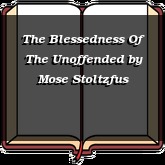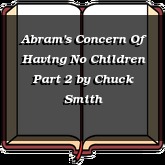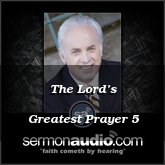"He arose, and did eat and drink, and went in the strength of that meat forty days and forty nights."
—1 Kings 19:8
Morning Thought
All the strength supplied to us by our gracious God is meant for service, not for wantonness or boasting. When the prophet Elijah found the cake baked on the coals, and the cruse of water placed at his head, as he lay under the juniper tree, he was no gentleman to be gratified with dainty fare that he might stretch himself at his ease; far otherwise, he was commissioned to go forty days and forty nights in the strength of it, journeying towards Horeb, the mount of God. When the Master invited the disciples to "Come and dine" with him, after the feast was concluded he said to Peter, "Feed my sheep"; further adding, "Follow me." Even thus it is with us; we eat the bread of heaven, that we may expend our strength in the Master's service. We come to the passover, and eat of the paschal lamb with loins girt, and staff in hand, so as to start off at once when we have satisfied our hunger. Some Christians are for living on Christ, but are not so anxious to live for Christ. Earth should be a preparation for heaven; and heaven is the place where saints feast most and work most. They sit down at the table of our Lord, and they serve him day and night in his temple. They eat of heavenly food and render perfect service. Believer, in the strength you daily gain from Christ labour for him. Some of us have yet to learn much concerning the design of our Lord in giving us his grace. We are not to retain the precious grains of truth as the Egyptian mummy held the wheat for ages, without giving it an opportunity to grow: we must sow it and water it. Why does the Lord send down the rain upon the thirsty earth, and give the genial sunshine? Is it not that these may all help the fruits of the earth to yield food for man? Even so the Lord feeds and refreshes our souls that we may afterwards use our renewed strength in the promotion of his glory.
Ⓒ 1996-2018 Heartlight, Inc. This material may not be reproduced in part or whole for commercial use without written consent. Written by Charles H. Spurgeon.

Continue reading...
—1 Kings 19:8
Morning Thought
All the strength supplied to us by our gracious God is meant for service, not for wantonness or boasting. When the prophet Elijah found the cake baked on the coals, and the cruse of water placed at his head, as he lay under the juniper tree, he was no gentleman to be gratified with dainty fare that he might stretch himself at his ease; far otherwise, he was commissioned to go forty days and forty nights in the strength of it, journeying towards Horeb, the mount of God. When the Master invited the disciples to "Come and dine" with him, after the feast was concluded he said to Peter, "Feed my sheep"; further adding, "Follow me." Even thus it is with us; we eat the bread of heaven, that we may expend our strength in the Master's service. We come to the passover, and eat of the paschal lamb with loins girt, and staff in hand, so as to start off at once when we have satisfied our hunger. Some Christians are for living on Christ, but are not so anxious to live for Christ. Earth should be a preparation for heaven; and heaven is the place where saints feast most and work most. They sit down at the table of our Lord, and they serve him day and night in his temple. They eat of heavenly food and render perfect service. Believer, in the strength you daily gain from Christ labour for him. Some of us have yet to learn much concerning the design of our Lord in giving us his grace. We are not to retain the precious grains of truth as the Egyptian mummy held the wheat for ages, without giving it an opportunity to grow: we must sow it and water it. Why does the Lord send down the rain upon the thirsty earth, and give the genial sunshine? Is it not that these may all help the fruits of the earth to yield food for man? Even so the Lord feeds and refreshes our souls that we may afterwards use our renewed strength in the promotion of his glory.
Ⓒ 1996-2018 Heartlight, Inc. This material may not be reproduced in part or whole for commercial use without written consent. Written by Charles H. Spurgeon.
Continue reading...



 **Prayer Updates!**
**Prayer Updates!** 
 Let's pray for
Let's pray for 
 Let's keep
Let's keep  And let's remember
And let's remember 
 Urgent lift for Bongani to Witbank (
Urgent lift for Bongani to Witbank ( Mom's health (
Mom's health ( Visa approval & car sale (
Visa approval & car sale ( Pregnancy health & housing needs (
Pregnancy health & housing needs ( Freedom from temptation (Anonymous)
Freedom from temptation (Anonymous) Mail service improvements (
Mail service improvements (

 against spiritual attacks. "Submit yourselves, then, to God. Resist the devil, and he will flee from you" (James 4:7). Praying for strength and protection in Jesus' name!
against spiritual attacks. "Submit yourselves, then, to God. Resist the devil, and he will flee from you" (James 4:7). Praying for strength and protection in Jesus' name!  **Prayer Updates!**
**Prayer Updates!** 










